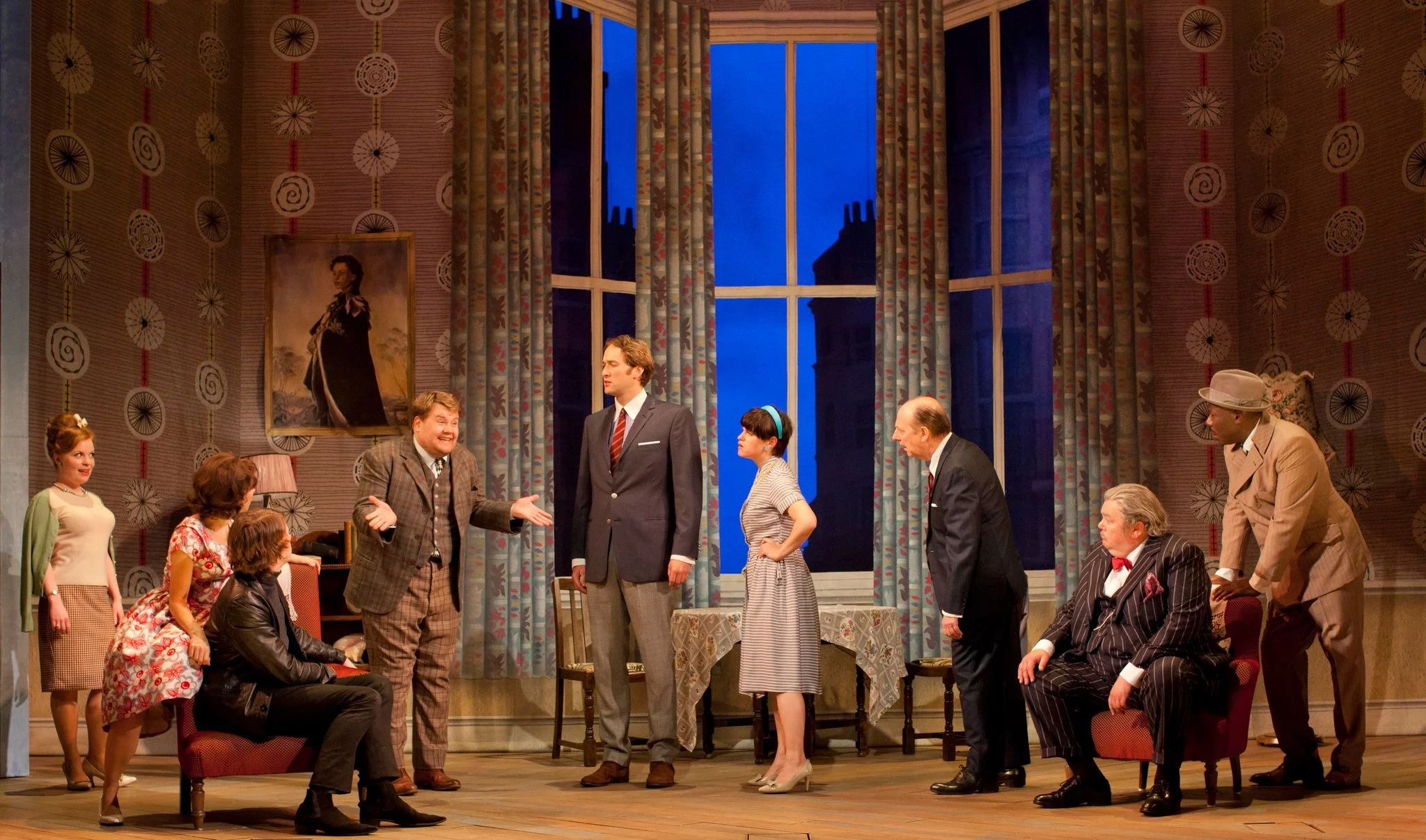For better or worse, TV has always been the black sheep of storytelling mediums. Not as prestigious as movies, nor as intellectual as books, nor as cultured as plays, for decades it has stood as something less—boob tube, couch potato, mind-numbing entertainment.
And, by and large, these insults were not entirely undeserved. We would occasionally have the critically-acclaimed program, but not until recently has TV as a whole started to be taken seriously as an art form. This is not a knock on the actual medium but more on how people treated it.
Oftentimes, TV is seen as an ad-dispensing box, with the goal of getting people to watch those ads by putting something entertaining enough to hold attention from one commercial break to the next. But as prestige television has emerged, people have discovered the key to what TV can do that other mediums cannot. To examine this, let’s look at what the other mediums bring to the table.
Theater
From the wordplay of Shakespeare to the melancholic monologues of David Mamet to rapping about the country’s founding in Hamilton, theater finds its strength in dialogue. Too far from the stage to see details and too removed from the actors to hear their thoughts, plays allow words to bounce across actors and tell a story through them.
Books
Books have the advantage of letting us get right into a character's head, giving us their every thought, and also being able to pull out and tell a story from an omniscient viewpoint. They allow us to connect with their inner psychology as the stories are familiar enough to be told from their point of view, making for a more intimate experience than any other medium, and they can bounce around anywhere without a dime being spent.
Movies
So with all of this, what does television do? Well, for a long time, it didn’t do that much. While there were breakout shows like I Love Lucy or The Prisoner or Hillstreet Blues, outside of the occasional exception, TV treaded water. Shows had to appear week after week, year after year. So the makers of TV had to discover something that would hook viewers—and then do it over and over and over again.
From sitcoms hoping to land joke after joke to game shows that could at least get people shouting answers at the screen, TV found what worked and then repeated it indefinitely. It wasn’t that TV couldn’t offer something special—it was that most weren’t looking for it. But then, like buried treasure, it was uncovered.
Looking at what TV offered, we can look back at the way Charles Dickens and other renowned authors published his novels. He didn’t release them in one batch, like David Copperfield or Oliver Twist or one of the other sad little boys he wrote about. They came in installments, with people reading one part and then returning again and again for more.
We can find another example in radio—not easy listening or even Howard Stern, but the old serials that had audiences tuning in week after week to see how the space cadet would escape the aliens or how the gold thief would be caught. Sure, soap operas did this, but they were largely unplanned, focused mainly on crafting just enough of a cliffhanger to make people feel like they needed a payoff.
Television saw that it could offer something even more profound—depth.
This depth was something you could not get in something as short as a play, a movie, or even a novel (unless we’re talking about an epic fantasy). Since viewers were coming back week after week, episode after episode, the question shifted from "How do we fill up all this time?" to "How do we use this to our advantage by telling as deep a story as possible?"
Originally credited to The Sopranos and present now in shows like Beef and other prestige series, the key became depth.
And depth starts with storytelling. Instead of a single burst about what happens to a gangster, a show can now tell a much more complex story about his detachment and reattachment to his family over years. It can tell the epic story of a kingdom and a battle for the throne. It can tell the story of love within a paper company.
Another part of depth is characterization. Gone are the days of returning to the status quo every episode. Entire arcs can be told over a TV series. We can see Mr. Chips become Scarface or a secretary become an advertising executive in the 1960s.
TV can also explore depth in themes. The Wire examines how America is broken across the criminal justice system, class system, politics, education, and media. Mad Men weaves an overall theme while giving each season its own thematic focus, with individual episodes reinforcing and enhancing them.
So when looking for TV that pushes the medium forward, look for shows with depth. Not all great TV has a strict narrative storyline, but all great TV pushes itself in some way. Nathan for You constantly tries to top itself with increasingly brilliant and ridiculous business ideas. I Love Lucy took chances, like having an entire season set on a road trip through Los Angeles. Seinfeld explored increasingly mundane aspects of daily life that turned out to be major social phenomena.
When you start a TV show, whether or not you find it entertaining, ask: Is it pushing itself in some way? Is it aiming to just entertain and do the bare minimum of the status quo, or is it expanding and taking a chance in some way?
That is the journey from couch potato to something classier. Maybe we can just call it couch potato au gratin.
Thanks for reading!
Check out our streaming service: https://www.cideshow.com/subscribe/
You can also follow us on X and Instagram.







